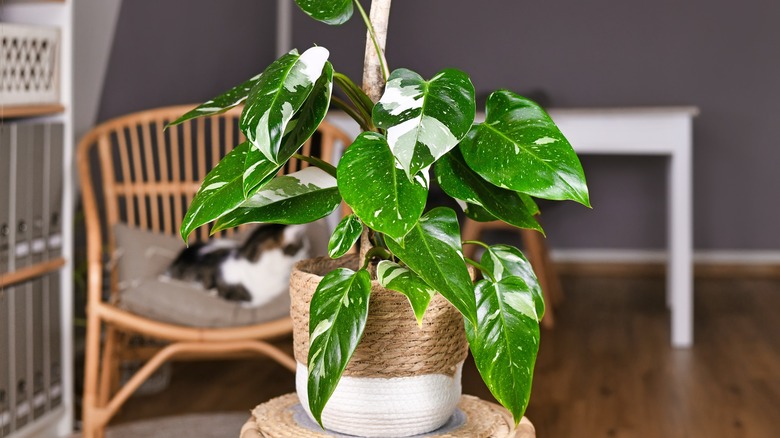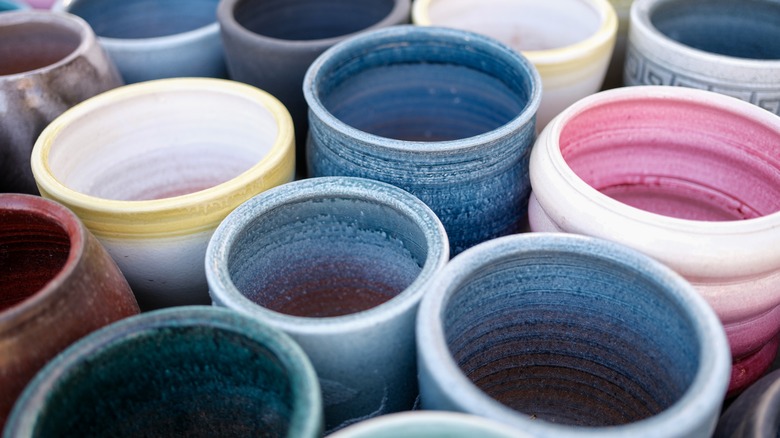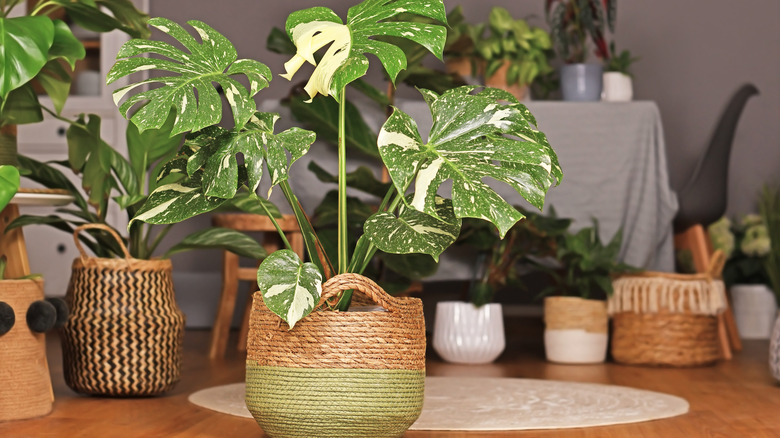Why Potted Plants From Estate Sales Are More Valuable Than You Think
We may receive a commission on purchases made from links.
Anyone with a plant collection knows you should never walk away from a plant bargain. Plants aren't cheap, nor are the containers you put them in. Your budget may hinder you from buying large plants or lower your plant shopping frequency, due to how much the hobby costs. Fortunately, estate sales may be able to save you a few dollars. These sales hold plenty of plant opportunities because almost everything in the house is for sale due to someone passing away, moving to assisted living, or downsizing. If you've ever shopped garage sales for plants, you may have been disappointed because who would want to sell a beloved plant? But at estate sales, everything must go, including that twenty-year-old ficus in the corner.
These sales aren't guaranteed cheaper prices, especially if the people pricing the items are finding it hard to let things go. Estate sale items are typically priced based on the market price, with their condition taken into consideration. But every sale will be different; some may be underpriced, and some will be overpriced. A little research before you go will help you know if it's a deal or not.
The cost of pots and plants
Search the internet for a 30-inch diameter planter, and you'll be hard-pressed to find something below $200 that isn't plastic. Giant ceramic pots are easily $500 on the cheap side, and even the small 6-inch ones are usually $30 per pot. If you're at an estate sale and see pots that aren't plastic and don't cost you an arm and a leg, you shouldn't pass it up. Large potted plants usually need a minimum of 18 inches in diameter at mature height. If you want a large plant in your home or on your porch, you'll need to plan on forking over the cash for a large pot or hope you get lucky at an estate sale.
Plants themselves can be a large expense, and they often don't come fully mature or in a fancy pot. A money tree from Costa Farms on Amazon is $50, and it's only 3-4 feet tall and comes in a nursery pot rather than a finished pot like terracotta or ceramic. If you want a 6 foot tall, you're likely looking at $100 or more from a local nursery or reputable seller online.
Determining if it's worth the price
Write down or keep a mental note of typical prices for various sizes of pots and plant species to help you determine if a plant is worth it. If you want a monstera, for example, look at how much various heights sell for online, then look at the price of pots you'd want to buy. Remember that the pot's material, size, and production will play a big part in price. A small handmade ceramic pot will likely cost much more than a large mass-produced plastic pot.
When you're at the estate sale, inspect the plant and the pot. Check to see if the plant is healthy. If it has yellowing leaves, damage, or pest problems, you'll risk losing the plant soon after you purchase it. If the pot is cracked, it may break or not last as long as you want. Try to find out the age and history of both the plant and the container it's in. An old plant will be more valuable than a new one, and if the pot is an heirloom passed down from a century or two ago, the price will likely be higher.
Consider the value of the plant and pot and compare it to what you saw online. If it fits your budget and you value the items, it will be well worth the cost.


